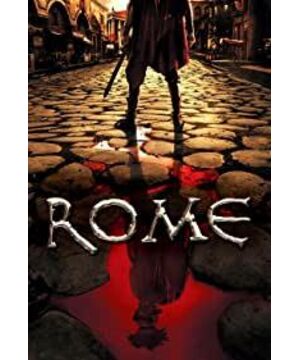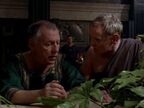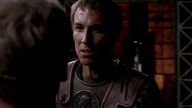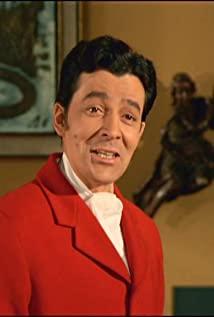Brutus has a very noble surname. His ancestors once pulled down the king of Rome hundreds of years ago and created the glorious Roman Republic. Before his conversion to Caesar, he had been a strong supporter of the republic, even though the Roman republic in the mid-first century BC was permeated with corruption and incompetence. Caesar treated Brutus as his own son, although most believed he was indeed the latter's biological father. This makes Brutus' final assassination of Caesar in the Senate an eternal controversy. Brutus will not be dictatorial in his life, even if he is as powerful as Caesar; years and then himself a stepping stone to Augustus' exploits.
I lean towards the former. Brutus, like the elders who have been reduced to street-fighting hooligans, stabbed Caesar, most likely his father. But Caesar's act of increasing the number of the senate undoubtedly set himself a fire, he usurped the position of the senators, and he stripped them of their dignity. Whether or not Caesar uttered the famous "It is you, my son" in Greek, you cannot be sure whether Brutus was good or evil. Besides, was good and evil really that obvious in Rome in the first century BC?
At the end of the first season of "Roma", a conspiracy came to fruition. Caesar fell to the ground of the Senate in blood (he allegedly died under Pompey's statue), Brutus burst into tears but stabbed the last blow (only one of Caesar's 23 blows was said to be fatal) Injury), the low-class born, the Roman legion 13th Army centurion Warrenus, who was raised by Caesar as a senator, discovered the infidelity of his beloved wife, the wife jumped off the building and committed suicide, the villain was pure and simple. The female slave held hands. Anthony withdrew noncommittally after witnessing the blood in the Senate. Brutus' mother, Sevilla, the mistress abandoned by Caesar, pushed the Atia family to a dead end. This is a good tail. One of Anthony's subsequent mistakes was that he did not immediately and thoroughly reckon with the murderer of Caesar's assassination, and did not foresee the ability of the young Otavi, and despised him to the utmost extent. The second mistake , let's not mention it, we can only say that a man without sex is either anorexia or impotence (I am not talking about you~).
Brutus did achieve his purpose, but what he got. The Senate will once again be bloodily purged. The history of Rome inevitably needs an iron bowl figure, if it is not Caesar, it is Augustus in the name of Caesar. Just like Napoleon a thousand years later, they are not gods, maybe some aspects are so inferior that the commoners can't bear it, but the people are tired, tired, and lazy, as long as a strong dictator who is not afraid of death and breaks through the siege gives them Peace, stability and bread, all the people pay is chanting a few slogans. Dictators are playing with the people, but why aren’t the people playing with the dictators?
Warrens has sworn allegiance to Anthony, and it's not hard to see that Plow has a good relationship with Otavi. At the threshold of the storm, these two my dear warriors must stand on the opposite side. Although the duel field is bloody, the "13th" is still the most primitive and straight to the heart. Not seeing as close as Caesar and Brutus, but also because of the latter's follow Pompey's eternal distrust. That's how tragedy happens.
Throw away the bloody violence and all-encompassing mess of "Roma," and the story remains the same—corrupt democracy and sober dictatorship. Octavius settled the Senate, Brutus, and Antony, but Augustus did not settle Rome. In the end, another force triumphed, the most benevolent and cruel faith in the world.
Van Loon wrote in "The Story of Man": "Soon there will be an open struggle between the palace and the manger. And the manger will present the dawn of victory."
(Accordingly, Jesus was born in the manger)
View more about Rome reviews











